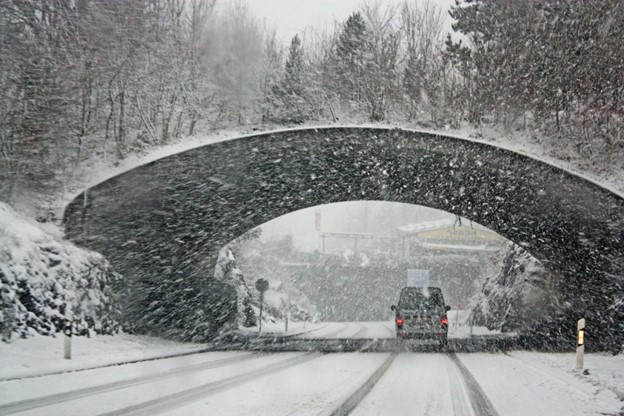If A Person Gets Into A Car Accident Because Of Bad Weather, Who Is Responsible?

If A Person Gets Into A Car Accident Because Of Bad Weather, Who Is Responsible?
Getting into a car accident is a terrifying and stressful ordeal that can leave you pointing fingers at third parties and wondering who is truly at fault. This can become all the more stressful and confusing if you have an accident due to bad weather, leaving it unclear who is truly at fault.
To make matters worse, determining liability during a car accident, especially one that happened in bad weather, can be super tricky. If you’re suffering the effects of serious injuries or emotional trauma resulting from an accident that happened in bad weather, you would want to know who’s at fault.
Ristich Law has created this complete guide to liability and accidents due to bad weather, so you can start securing the compensation you deserve.
What Constitutes As A Weather-Related Car Accident?
Before we get into the specifics of liability, it’s important to first determine what we mean by a weather-related accident.
As you can imagine, adverse weather, particularly in wet or icy conditions, can present extremely hazardous conditions for those that decide to brave the weather. Reduced stopping distance, skidding, and poor visibility are a recipe for disaster and can result in potentially fatal car accidents.
In fact, 30% of Canadian car accidents happen during adverse weather conditions. We know that sometimes, it’s not as simple as just hanging up your keys and deciding not to drive as work, school, and other life obligations demand that you need to leave the house and use your vehicle in treacherous conditions.
Although there are ways you can increase your chances of getting to your destination unharmed in adverse weather conditions, such as ensuring you have the correct tires on your car, using fog lamps and driving slowly, sometimes, getting into an accident in adverse weather is unavoidable.
Generally speaking, adverse weather refers to any weather that reduces your ability to avoid an accident. Be that wet and slippery leaves, icy roads, foggy mornings or particularly low sunsets, adverse weather can present a huge problem to drivers in Canada and across the globe.
So, Who Would Be At Fault?
Although it might seem obvious to blame icy roads and torrential rain when we get into an accident, the reality of the situation couldn’t be any more different. Unfortunately, even if both drivers attest to bad weather conditions as a result of an accident, it’s unlikely that insurers will accept this as a legitimate cause.
In some provinces, such as Ontario, specific acts prohibit drivers from blaming accidents on weather or road conditions. Of course, there are rare exceptions, but ultimately, the driver of the vehicle is liable, as they’re required to be in control at all times.
So even if icy conditions made you slide into oncoming traffic or extreme fog made it impossible to see the road, you will still be liable as you’re required to operate your vehicle safely in all kinds of weather conditions.
If you lose control of your vehicle and collide with traffic, you’ll likely be held responsible for an accident. In cases where many vehicles lose control due to things like black ice, a large pot-hole or poor visibility, and this happens at the same time, this might be considered a shared fault in the insurer’s eyes.
However, there are certain situations where municipalities or even the provincial government could be responsible for improper, inadequate or poor road maintenance as the cause for an accident. This is especially true in harsh Canadian winters. In some cases, if an injured person can prove that the province or municipality should have closed a road or didn’t adequately salt (or clear) a road, they may share in some liability for an accident caused by weather.
Just remember, the standard is not “perfection”, all they have to show is that they acted “reasonably” in the circumstances.
Who Would Determine Liability And How Would It Be Determined In A Situation Like This?
Your insurer and the law will ultimately determine liability in the event of a weather-related accident, so that’s why it’s important to not just rely on a police officer’s determination at the scene of the accident.
How insurers determine liability will depend on a case-by-case basis, but mostly, they’ll do this by determining whether the driver was negligent when the accident occurred. Negligence refers to the driver not taking proper steps to ensure that they drive safely in inclement weather.
Negligence will also refer to the car’s condition at the time of the accident to determine whether the car has issues such as a low tire tread or poorly maintained brakes that increase the likelihood of an accident. Some examples of negligence include:
● Speeding
● Poor maneuvering
● The driver didn’t keep a safe distance between the vehicles
● Distracted driving
● Not using headlights
● Poor tires
● Headlights not working
● Ineffective brakes
If any of these applied to you at the time of the accident, you’ll likely be regarded as negligent and be held liable for the accident.
Do You Require A Car Accident Lawyer In Etobicoke? Call Ristich Law!
Do you need a professional lawyer to help you navigate a complicated weather-related accident case? Ristich Law can help you! Our team of personal injury lawyers are ready to help every client in Etobicoke settle their car accident cases, making it an easy and stress-free process. Contact us today to find out how we can help you!
Tell Us What Happened!
Free Case Evaluation
Getting in touch is easy! Use the form below and request a FREE case evaluation and consultation today.
